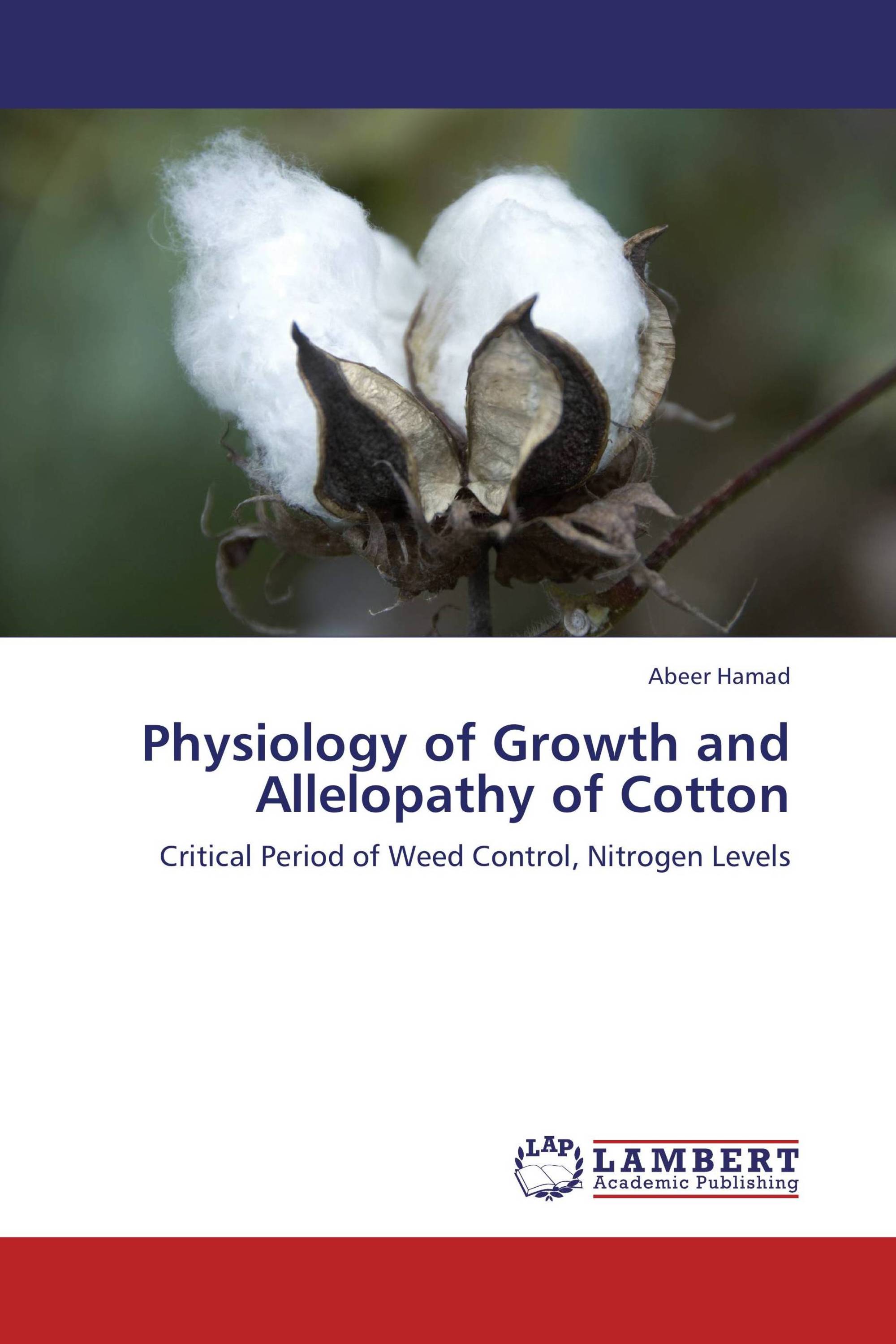Physiology of Growth and Allelopathy of Cotton
Critical Period of Weed Control, Nitrogen Levels
LAP Lambert Academic Publishing ( 2011-09-01 )
€ 59,00
The critical period of weed control is an important concept in Integrated Weed Management (IWM) systems. This period has been defined as an interval in the life cycle of the crop when it must be kept weed-free to prevent yield loss. This concept helps in determining the most effective time for non-residual postemergent herbicide applications, and reduces the practice of season-long residual herbicides, and unnecessary late applications of herbicides.In central Greece, cotton is primarily grown as a spring-seeded, annual crop. The advent of soil-residual herbicides and the increased use of herbicide-tolerant cultivars have increased the reliance on herbicides for the control of weeds in this crop. Therefore, in the first part of this book the critical period of weed control in cotton at three nitrogen levels in central Greece was identified. In other hand, in the second part of this book the allelopathic effects of redroot pigweed (Amaranthus retroflexus L.) on cotton and some other crops was investigated, where redroot pigweed is considered as a highly problematic weed in cotton fields in Greece by using different procedures.
Book Details: |
|
|
ISBN-13: |
978-3-8454-7088-7 |
|
ISBN-10: |
3845470887 |
|
EAN: |
9783845470887 |
|
Book language: |
English |
|
By (author) : |
Abeer Hamad |
|
Number of pages: |
128 |
|
Published on: |
2011-09-01 |
|
Category: |
Agriculture, horticulture, forestry, fishery, nutrition |




